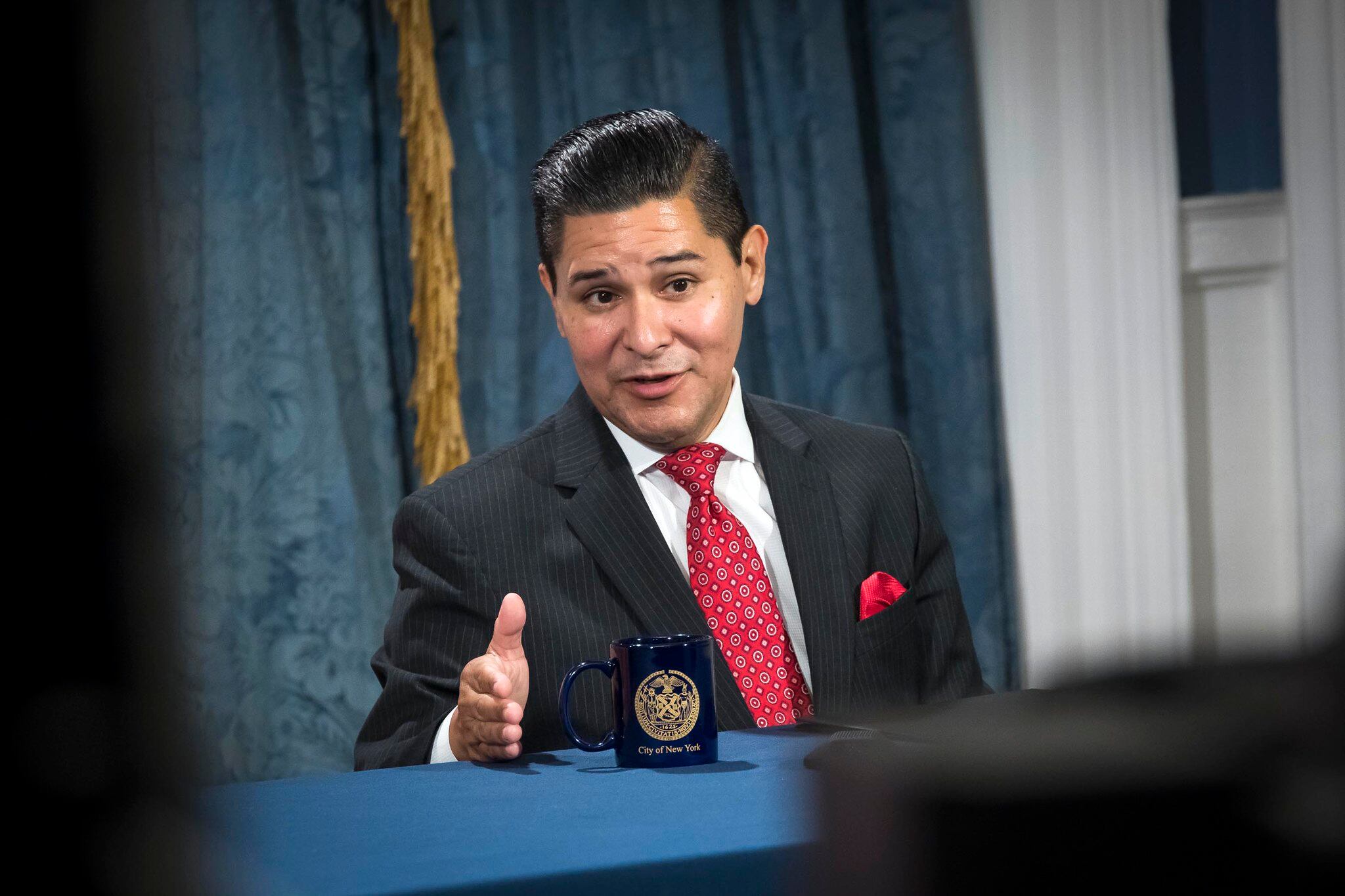Students who don’t comply with requirements to wear masks in schools will be sent home and barred from in-person learning, schools Chancellor Richard Carranza told parent leaders on Tuesday, a position he said is essential for maintaining public health.
“It sounds harsh,” Carranza said. “I’m just telling you if you don’t wear your face covering, if you don’t wear your [personal protective equipment], if you don’t cooperate, you have now elected for remote learning 100% until you are willing to follow the safety protocols.”
Carranza said exceptions will be made for students who are unable to wear masks for health reasons or “younger children who aren’t developmentally able.” A department spokesperson said the city is ordering masks for schools in case students don’t have their own and a student who “repeatedly refuses to wear a covering” would be sent home.
The chancellor’s rhetoric on how the nation’s largest school system will enforce face coverings is more forceful than just a few weeks ago, when Carranza emphasized that “enforcement” is the wrong way to describe the department’s approach.
“There’ll be a lot of restorative ways of helping students to understand why it’s important to wear the mask,” Carranza said at a July press conference. “So it’ll be redirection, it’ll be education. We are not talking about punishing kids.”
New York City is planning to open school buildings in September for in-person learning, though due to social distancing rules, students will only be allowed to attend in smaller groups one to three days each week. Parents may also opt for fully online instruction.
The chancellor’s comments suggest students who don’t wear masks and are sent home will learn alongside the students who are completely remote, though a department spokesperson did not provide details about how that will work.
In response to questions, education department officials insisted that sending students home does not constitute a disciplinary measure, but did not say what will happen if a student doesn’t wear a mask but refuses to leave. They also did not say who will make decisions to send students home or what specific criteria would be used to determine exemptions to the mask requirement.
It’s also unclear to what extent the rules will be enforced equitably. Suspension data and other analyses have shown that some student groups, including Black students and those with disabilities, are more likely than their peers to be removed from their classrooms for a range of infractions.
Bobson Wong, a math teacher at Bayside High School in Queens, said the requirement to wear a face covering or be sent home makes sense, but that he is hopeful the department is clear about how educators will be expected to apply the rules.
“Wearing a mask is a very tricky thing because it isn’t comfortable and it raises a lot of questions about enforcement,” Wong said. “Getting kids to wear a mask all day is going to be as difficult as getting kids to put their cell phones away in class.”
He said it’s essential that clear guidelines are communicated to teachers and students alike and schools should have some flexibility in handling non-compliance.
Naomi Peña, a Manhattan parent of three public school students, said the policy makes sense to her and it’s important the department shows it’s serious about enforcing public health measures. In March, the city struggled to equip schools with basic hygiene materials, such as soap and paper towels.
“It sounds drastic,” Peña said. “But there’s no other way to drive home the message that this is a necessity.”






